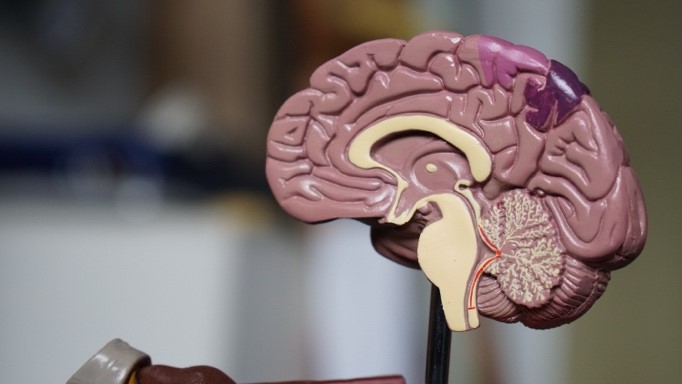Minhas JS, Chithiramohan T, Wang X, Barnes SC, Clough RH, Kadicheeni M et al. Oral antiplatelet therapy for acute ischaemic stroke. Cochrane Database of Systematic Reviews 2022, Issue 1. Art. No.: CD000029. DOI: 10.1002/14651858.cd000029.pub4
Picture this…
Adam is a 65-year-old man who has been trying to maintain a healthy lifestyle since being diagnosed with high blood pressure. Whilst playing tennis with his wife, Ann, he felt dizzy and his speech became slurred. At the hospital he was diagnosed with an acute ischaemic stroke and prescribed aspirin (an oral anti-platelet medication) as part of his treatment. An acute ischaemic stroke is a serious life-threatening medical condition that happens when the blood supply to part of the brain is cut off. Ann was very worried about Adam and didn’t understand why they were treating him with aspirin, which is a drug she has taken for minor ailments like headaches and sore throats.

Image sourced from Centre for Ageing Better
Summary messages -
- In people who have not experienced bleeding inside their skull or brain, aspirin (at a dose of 160 mg to 300 mg) taken every day and started within 48 hours of the onset of stroke symptoms, saves lives and reduces the risk of further strokes occurring in the first two weeks.
- Aspirin was also associated with a small but definite risk of bleeding but this hazard was offset by the reduction in further ischaemic strokes.
- The conclusions are based on overall good‐quality evidence, provided by two large well‐conducted studies.
- Aspirin is easily administered orally and inexpensive, making it highly accessible to low-to-middle income countries.
What the research says -
In this systematic review, published by Cochrane, the review authors aimed to provide more up-to-date evidence on the safety and effectiveness of oral antiplatelet therapy (e.g. aspirin) when given to people with acute ischaemic stroke.

Photo by Robina Weermeijer on Unsplash
Data was collected from 11 studies involving 42,226 people aged 70 or above with definite or presumed ischaemic stroke. In these studies, people were prescribed different oral antiplatelet medications (including aspirin) for 14 days and were monitored closely both during and after the study.
People who were given oral antiplatelet therapy showed a reduction in death from any cause or any stroke after the treatment period. In addition, oral antiplatelet therapy reduced the risk of clot formation in the artery of the lung (pulmonary embolism). There was a limited amount of data about the effectiveness of the oral antiplatelet medication at reducing the risks of clot formation in deep veins (deep vein thrombosis). Antiplatelet therapy was associated with an increase in bleeding inside and outside the cranial cavity (intra and extracranial haemorrhage) during the treatment period. Despite this, the danger was offset by the possibility of complete recovery and reduced recurrence of any type of stroke. The net benefit of aspirin therapy is maximized when started within 48 hours of stroke onset. Future experiments should focus on antiplatelet agents other than aspirin and test the combination of aspirin with anticoagulants (medications that slow down the process of formation of clots) to further improve therapy for acute ischaemic strokes.
Where is Adam now…
Adam and Ann now feel much more informed. They understand the benefits of aspirin. They are also aware of the risk of bleeding and believe that the net benefits of the therapy outweigh these risks. Adam is keen to share the new information he has learned with his friends at the tennis club. Adam and Ann are looking forward to Adam completing his resting period and returning to regular tennis matches together, and with their friends, to maintain good overall health and wellbeing.

Photo by Markus Winkler on Unsplash
BSc Translational and Molecular Medicine Student, University of Ottawa (Canada).
Please note: the stories and pictures used do not represent specific individuals – they are merely used to contextualise the data into a more digestible format
Reference points –
Minhas JS, Chithiramohan T, Wang X, Barnes SC, Clough RH, Kadicheeni M et al. Oral antiplatelet therapy for acute ischaemic stroke. Cochrane Database of Systematic Reviews 2022, Issue 1. Art. No.: CD000029. DOI: 10.1002/14651858.cd000029.pub4
If you have any comments regarding this blog post, please contact us at globalageing@cochrane.org. We would love to hear your thoughts and answer any questions you may have.
Web Editor: Monserrat Conde
